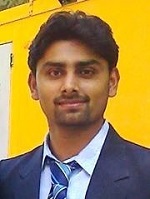Paradigm shift in radiation therapy technology in India - PDF Version
.jpg.aspx)
Radiotherapy is a multidisciplinary speciality that uses complex equipment and radiation sources to deliver doses of radiation to the planned treatment volume. The objective is to deliver therapeutic doses to the delineated target volume consistent with the clinical requirement while keeping doses to surrounding normal tissues as low as practicable. Radiation therapy technologists ((radiation therapist (RTT) in ESTRO)) play an important role in the procedural steps of radiotherapy practice and their contributions are significant in particular in treatment planning, patient simulation/verification treatment, aiding in fabrication, treatment delivery and patient evaluation during the treatment.
.jpg.aspx)
Radiation oncology teams in India (radiation oncologists, medical physicists, radiation therapists and nurses)
The Association of Radiation Therapy Technologists of India (ARTTI) was formed in 1996. About 1500 RTTs work in departments of radiation oncology in India, of whom 1000 are active members of the association.
ARTTI was founded with the objective of encouraging the use of radiation technology and physics in medicine. The main objectives of the association are the development of academic activities and provision of a medium for the exchange of information between individuals to help members to keep abreast of the latest advances in technology. It provides a forum for RTTs to conduct annual conferences (at national and international levels) and for the exchange of ideas and dissemination of new knowledge. The association collaborates with similar associations around the world to raise the quality of radiotherapy in India.
In recent years the field of radiation oncology has undergone a sea change in its conventional treatment approach due to technological revolution, and this latest technology is coming to India in a big way. Various new radiation techniques have been introduced such as three-dimensional conformal radiotherapy (3D CRT), intensity modulated radiotherapy (IMRT), image guided radiotherapy (IGRT), four-dimensional radiotherapy (4D RT), stereotactic radiosurgery (SRS), stereotactic radiotherapy (SRT), deep inspiration breath hold (DIBH) methods, prone breast radiotherapy, rapid arc therapy and proton therapy. The present-day external beam therapy and brachytherapy machines are highly sophisticated and fully computerised, so RTTs must be highly trained to operate the machines in order to achieve accurate and precise execution of the techniques. The RTTS must be highly intelligent and disciplined and be well-versed in quality assurance of both the equipment and of various specialised radiotherapy techniques. RTTs are also involved with patient communication and care; they are the key people who deliver the radiation to the patient.
In India there are two ways through which a student can become a RTT. One is through completion of a two-year postgraduate diploma in radiation therapy and the other is through completion of a three-year degree course in radiotherapy. These courses are run by government and private universities. ARTII promotes the education of budding RTTs by holding academic activities from time to time. These include seminars, quizzes, poster displays and oral presentations, and it organises radiation safety programmes.
My heartfelt condolences go to those who have lost their loved ones in this pandemic. It is a tough time for all of us. I salute all the medical professionals and support staff for their tireless efforts to serve patients, both in India and in other countries.
RTTs are among the frontline workers who come into direct contact with patients for extended periods of time, every day. Their work with patients who have cancer remains crucial and continues each day, even during a pandemic.
Thank you and best wishes

Prakash Umbarkar (senior radiation therapist)
P.D Hinduja Hospital
Mumbai, India
National academic coordinator & west zonal secretary
ARTTI of India
umbarkarprakash@gmail.com